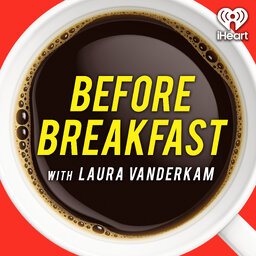What Fresh Hell co-host Amy Wilson talks about people pleasing, and learning to live with discomfort
In 1 playlist(s)
Before Breakfast
In each bite-sized, daily episode of Before Breakfast, host Laura Vanderkam shares a time management…Social links
Follow podcast
Recent clips

Second Cup: Upgrade your background music
05:06

Second Cup: A video is worth 1000 words
04:49

Find gentle accountability
04:46
 Before Breakfast
Before Breakfast